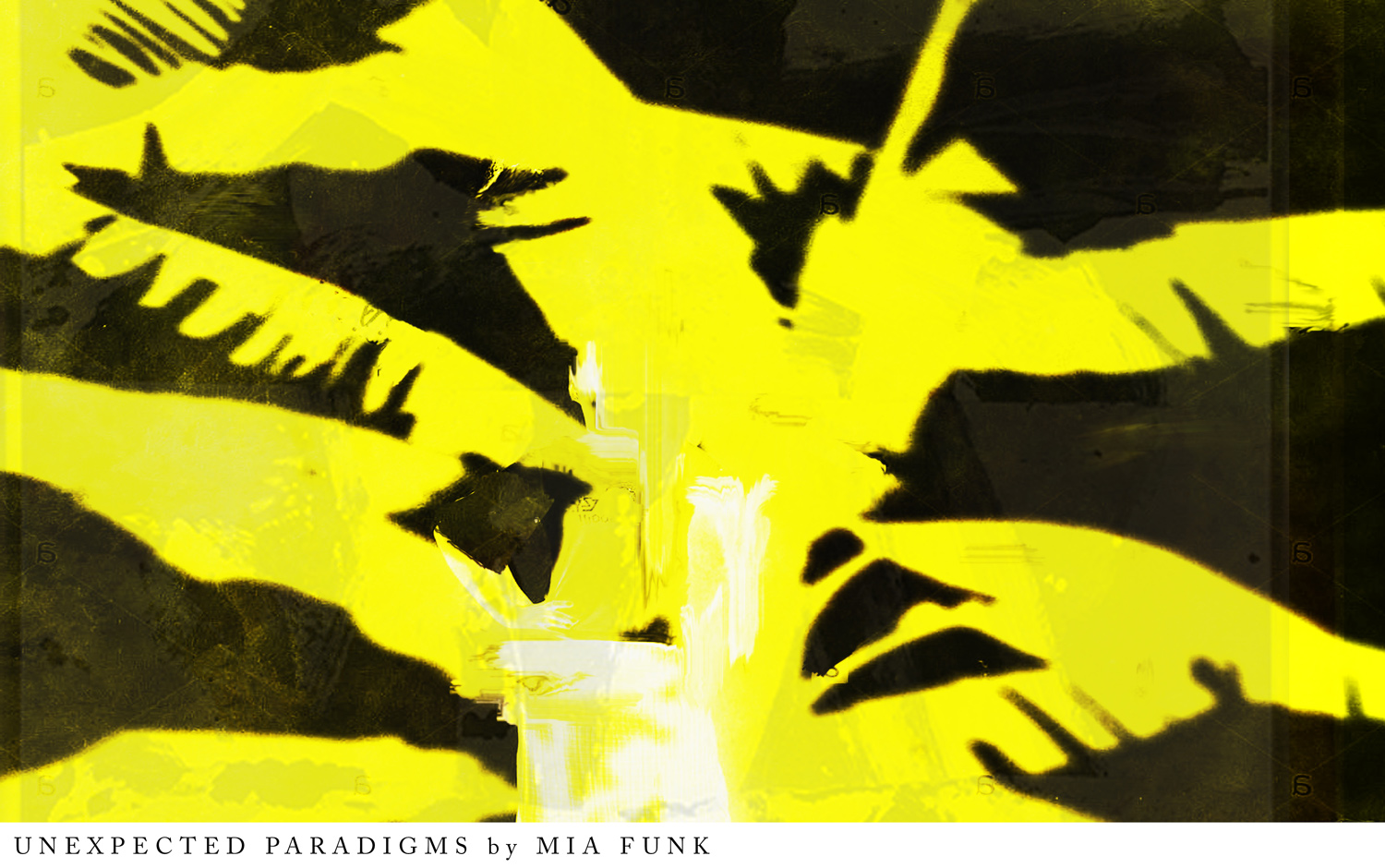UNEXPECTED PARADIGMS
/A literary critic from São Paulo,
reflecting on Brazilian song
of the twentieth century,
said that the secret
of its popularity
was the substantial presence
of unexpected paradigms
in the lyrics.
The unusual juxtaposition,
surprising,
and sometimes even bizarre,
of two nouns, of two things
which never ought
to appear together,
like tumor and diamond,
petal and lead.
Each of these paradigms
could cause
a brief and benevolent
mental short-circuit.
So then I think of the new century,
the one of pre-emptive wars,
of the rogue state,
of bombs blasting
in the name of liberty.
Welcome to the kingdom
of unexpected paradigms!
Please make yourself at home,
ass and metaphysics,
nice and spread out
on these muddied, chaste sheets.
You can expect to receive rocks thrown
and masked frenzies,
and they will take from you
hypothalami and harpoons,
while supplies last
in the utter season of pain.
Poor Brazilian song,
poor Chico Buarque,
Gil,
Noel Rosa and Caetano,
Jobim,
João Gilberto.
Their winning
rhetorical strategy
has become
the daily dalliance
of the new sensibility.
But the game goes on.
The possible conspiracies
are infinite.
Let’s shuffle the words
one more time:
The strategy of the tumor
of well-fed Chico Buarque
has become
the lead harpoon
of chaste liberty.
The rogue nouns
of the short-circuited century
are unexpected stones,
are pure mental mud
disguised
as rhetorical diamonds.
I PARADIGMI IMPREVISTI
Un critico letterario di São Paulo,
ragionando sulla canzone brasiliana
del Ventesimo secolo
diceva che il segreto
del suo successo popolare
era la nutrita presenza
dei paradigmi imprevisti
nelle parole.
L’accostamento insolito,
sorprendente,
e a volte anche bizzarro
di due sostantivi, di due cose
che non dovrebbero mai
comparire insieme
come il tumore e il diamante,
il petalo e il piombo.
Ognuno di questi paradigmi
potrebbe causare
un breve e benevolo
cortocircuito mentale.
Allora penso al nuovo secolo,
quello delle guerre preventive,
dello stato canaglia,
delle bombe esplose
per la libertà.
Benvenuti nel regno
dei paradigmi imprevisti!
Accomodatevi pure,
culo e metafisica,
per favore, larghi
sulle caste lenzuola di fango.
Vi aspettano sassi
e febbri mascherati,
vi saranno sottratti
ipotalami e arpioni
fino all’esaurimento scorta
della pura stagione del dolore.
Povera canzone brasiliana,
poveri Chico Buarque,
Gil,
Noel Rosa e Caetano,
Jobim,
João Gilberto.
La loro strategia
retorica vincente
è diventata
il cane quotidiano
della nuova sensibilità.
Ma il gioco non si ferma.
Sono infinite
le cospirazioni possibili.
Rimescoliamo le parole
ancora una volta:
La strategia del tumore
del nutrito Chico Buarque
è diventata
l’arpione di piombo
della casta libertà.
I sostantivi canaglie
del secolo cortocircuito
sono sassi imprevisti,
sono puro fango mentale
mascherato
di diamanti retorici.
Translated by Don Stang and Helen Wickes
Artwork by Mia Funk

